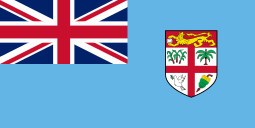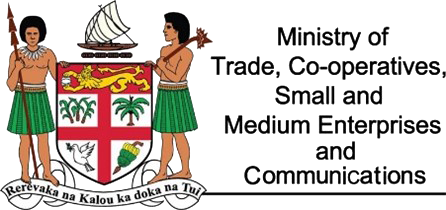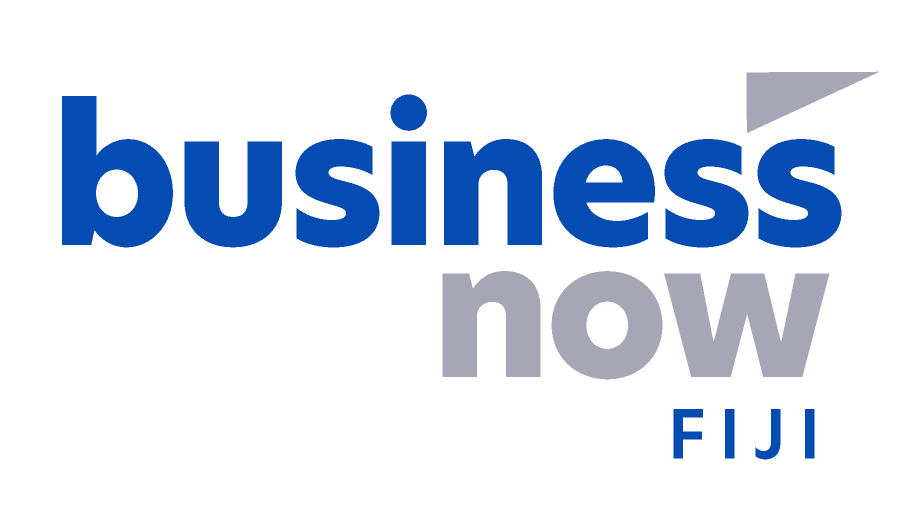A Fiji Government Website.

Official website links end with .gov.fj
Government agencies communicate via .gov.fj websites (e.g mcttt.gov.fj)
Secure websites use HTTPS
Look for a lock (🔒)or https:// as an added precaution. Shared sensitive information only on official, secure websites.

This is a website under purview of Ministry of Trade Co-operatives, Small and Medium Enterprises and Communications
Government agencies communicate via .gov.fj websites (e.g mcttt.gov.fj)
A Fiji Government Website.

MSME Fiji
Frequently Asked Questions (FAQs)
Starting a business is now just 2 simple online processes:
- Business name registration with Registrar of Companies; and
- Tax Registration with FRCS.
*Risk classification of business shall determine other regulatory requirements. Also, if a business sets up in a building which has already been certified by the relevant authorities, there’s no need for them to obtain new certifications for already-approved operations.
High Risk
Businesses classified as high risk will not be eligible to operate, unless they meet other legislative requirements/relevant compliance requirements such as acquisition of OHS, NFA, Health License, Liquor License, etc.
Low Risk
Businesses classified as low risk are eligible to start operation upon completion of (i) Business name registration and (ii) TIN registration.
For businesses which are being established in a building compliant with OHS and NFA requirements, do not need to re-obtain these certification. In cases where the building is refurbished to suit the business needs, the business will need to obtain both, OHS and NFA certifications.
Download and view the Business Risk Categorization Table.
Download and view the Business Risk Categorization Table to find out about your business classification and requirements.
Under the 2015 Companies Act, there are various types of business structures that you can register for and the most common business structures are stated below:
- Sole Trader
- Partnership
- Company – Private Company or Public Company
- Co-operatives
Find out about the different features of the business structures.
Depending on the type of business you want to operate, you will have to ensure that you follow the respective laws.
All process to setting up a business starts with registration of business name or company, with the Registrar of Companies, this is an online process and the link is available in the section Starting a Business of this portal.
Once the registration is completed, you will need to register for tax identification number. If you are going to operate a sole trader business, then you can use your personal tax number. If you don’t have a tax number. You can go to the Starting a Business section of this portal and complete the online tax registration process.
Post registration, you must determine your business risk catergroy. Businesses are classified as either Low Risk or High Risk. Low Risk businesses are allowed to start operations, and must comply with all relevant legal and regulatory requirements within 6 months of registration. Below are the steps for application for the post registration compliance. (Step-by-Step Guide: Post Registration Compliance).
Businesses classified as High Risk, cannot start operating until all the relevant regulatory requirements are complied with. Download and view the Business Risk Categorization Table. This table highlights the risk categories and post registration compliance for each business type.
Fijians now have the provision for Home-Based Business, provided they meet the following provisions:
- Owner to reside on the property;
- Signage not to be more than 1 square meter in size;
- Not to use mechanical or electrical equipment that is noisy or causes nuisance or disturbance;
- Not more than 3 employees
- Not store or display any material of equipment associated with the business outside the property where the business is carried out including the garage, verandah or the awn
- Don’t change the structure of the principle property
- Not create any pedestrian or vehicular traffic or parking in excess of what is necessary.
You can refer to the following link or get in touch with a tax agent for advice.
When you register for Tax Identification Number (TIN) you will be able to register for the different taxes. You can refer to the following link or get in touch with a tax agent for advice.
Yes, you can register for the relevant tax requirements through the online process.
As a start-up you will be given 6 months to comply with other legal requirements. These include things such as, NFA, OHS, FNPF, registration with FNU to name a few. These are legal requirements that you have to comply with. If your business is already in a building that has been certified by NFA and OHS and it is valid, and you have not made any structural changes to the building, then you can use the valid certification. However, as soon as you hire staff you need to ensure FNPF and FNU registration are complied with.
If you are not complying with any legal requirements, then the relevant agency can take action against you in line with their legislation and also recommend closure of business and cancellation of business license.
You can contact any Companies offices at the following locations. Or contact the Business Advisory Officers at MSME Fiji on the following numbers:
Central/Eastern Division
+679 998 6503 or +679 990 7398
Western Division
+679 990 4340
Northern Division
+679 990 4337
In addition, support and advice is available at Business Link Pacific. Visit the website or call Mr Ramesh Chand at +679 998 6577.
Can't Find Your Answer?
If you can’t find an answer to your question, or your question hasn’t been fully answered, you can talk us. We are here to help!
Contacts
Need help or advice on setting up your business? Please contact the Business Advisory Officers at MSME Fiji on the following numbers:
Central/Eastern Division
+679 998 6503 or +679 990 7398
Western Division
+679 990 4340
Northern Division
+679 990 4337
Support and advice are also available at Business Assistance Fiji. Please visit the website or call Mr Ramesh Chand directly at +679 998 6577. In addition, you may contact any regional Companies offices listed below for more information:
Region Offices
CENTRAL, EASTERN & SOUTHERN DIVISION
AREA
Suva
ADDRESS
Ground Floor, Suvavou House, Victoria Parade, Suva
CONTACT
3315280
AREA
Suva GIRC
ADDRESS
Government Information Referral Centre, Scott Street, Suva
CONTACT
–
AREA
Nasinu
ADDRESS
Unit 11 & 12, Valelevu Complex, Nasinu
CONTACT
3392055
AREA
Nausori
ADDRESS
Ground Floor, Tara’s Building River Road, Nausori
CONTACT
3475021
AREA
Vunidawa
ADDRESS
Vunidawa Government Station, Vunidawa, Naitasiri
CONTACT
–
AREA
Korovou
ADDRESS
Ground Floor, Harbhai Patel Buildings, Korovou, Tailevu
CONTACT
3430168
AREA
Navua
ADDRESS
Ro Matanitobua House, Vuninokonoko Road, Navua
CONTACT
3460343
AREA
Levuka
ADDRESS
Lomaiviti Holdings Building, Beach Street, Levuka
CONTACT
3440060
AREA
Lakeba
ADDRESS
Lau Provincial Office, Tubou, Lakeba
CONTACT
3315280
AREA
Vunisea
ADDRESS
Provincial Office, Vunisea Government Station, Vunisea
CONTACT
3315280
WESTERN DIVISION
AREA
Nadi
ADDRESS
Level 1, GT Plaza, Vunavou Crescent, Nadi Town
CONTACT
6700312
AREA
Lautoka
ADDRESS
Level 1, Westfield Mall, Tukani Street, Lautoka
CONTACT
6665133
AREA
Ba
ADDRESS
Ground Floor, Koronubu House, Ba
CONTACT
6674168 / 6674167
AREA
Rakiraki
ADDRESS
Ground Floor, Bhima Building, Vaileka, Rakiraki, Ra
CONTACT
–
AREA
Tavua
ADDRESS
Mobil Building, Tabavu Street, Tavua
CONTACT
6681009
AREA
Sigatoka
ADDRESS
Ground Floor, Keasuna Buildings, Sigatoka
CONTACT
6500954
AREA
Keiyasi
ADDRESS
Vatumali Government Station, Keiyasi, Navosa
CONTACT
–
NORTHERN DIVISION
AREA
Labasa
ADDRESS
Ground Floor, Namuka House, Labasa
CONTACT
8812477 / 8812448
AREA
Savusavu
ADDRESS
Provincial Office, Level 1, Gulabdas Building, Savusavu
CONTACT
8850006
AREA
Nabouwalu
ADDRESS
Naulumatua House, Nabouwalu
CONTACT
8836124
AREA
Taveuni
ADDRESS
District Office Complex, Waiyevo Taveuni
CONTACT
8880400
Templates
Business Plan
A business plan is converting your business idea into a written document which should include:
1. Background of the business, introduction of the business idea and why do you want to do business;
2. A description of the products you want to sell or services you want to offer;
3. The customers you wish to sell your products or provide your service to;
4. How you will advertise your business to attract customers; and
5. Your financing budget to get your business started.
A Business Plan helps you to layout the goals and objectives that needs to be achieved to get your business up and running. This Plan will also present a snapshot of the future of your business. The business plan will also help you to:
1. Maintain focus in achieving your business goals such as sales target, 2. Keeping track of expenses and payments etc;
3. Provide a guide for you and your staff in growing the business; and
4. Obtaining funds from Banks or other financing organisations.
Cash Flow & Forecasted Cash Flow
A Cash Flow Statement is a report that summarises the money or cash your business receives and pays out over a period time.
It can be prepared on a weekly, monthly or annual basis. Preparing cash flow statement on a monthly basis is most common interval. It should reflect all of your likely cash revenue sources (like sales or other payments from customers) and compare these against your likely business expenses (like supplier payments, premises rental and tax payments).
There are many reasons to prepare a cash flow statement, which includes:
– Tells you how much cash you have;
– Used for budgeting and forecasting purposes. For example, you will know how much cash you have to meet commitments such has payments to creditors, loan repayments, wages, taxes etc;
– Helps in investment or capital decisions; such as buying a vehicle for your business;
– Requirement for obtaining a loan from banks and financial institutions.
Features Of Different Type Of Businesses
Sole Trader
– Only one (1) owner of the business;
– Owner keeps all profits that is earned and is responsible for any losses the business makes;
– Unlimited Liability – if the business cannot pay off its debts and liabilities, owner’s personal assets can be used to pay off;
– Is the only business type that can use the same Taxpayer Identification Number for both personal and business matters. This means if you have already registered yourself for a TIN number, you can use that same one to register your business with the relevant authority.
Partnership
– A single business where two to twenty-five people share ownership.
– Each partner contributes to all aspects of the business, shares in the profits and losses of the business.
– The partners also assume unlimited liability for all debts and liabilities incurred by the partnership. This means if the business cannot pay off its debts and liabilities the partners’ personal assets can be used to make payment.
– A partnership business must have a Partnership Agreement or Deed. This agreement outlines the roles and responsibilities of each partner.
– It is important to have the partnership agreement STAMPED by Fiji Revenue and Customs Services. This is to ensure that the agreement can be used in the Court of Law during a dispute or where a legal action is required to be taken.
Company
– A company is a separate legal entity from the owners of the company and is a Limited Liability. That is, a person cannot make a claim on your personal assets, to recover debts of the company.
– A company in Fiji is only required to have an Articles of Association. This document defines the purpose of the company, lays out the process for appointing directors and the handling of financial records. The Companies Act 2015 has a standard Articles of Association listed in Schedule 2 which companies can adopt. Alternatively, a company can hire a lawyer to draft a specific Articles of Association for them.
Types of Company:
Private Company
Under this structure, you can have 1 to 50 Directors form a private company. A Private company name must include one of the following words at the end of its name: – “Pte Limited” or the abbreviation “Pte Ltd”.
Public Company
A public company can offer its shares for sale to the public and have many shareholders with the main aim to raise money or capital for investment back into the company. A public company is listed on the stock exchange.
Co-operative
– Minimum of 10 persons needed to register a co-operative.
– Each members has one vote irrespective of the number of shares held.
– Main focus is to provide services to its members.
– A Co-operative is a separate legal entity from the owners of the business and is a Limited Liability. The word “co-operative” must be included as part of their business name.
Types of Co-operative:
– Primary Co-operative is a registered co-operative consisting of individual persons or associations as members;
– Secondary Co-operative is a registered co-operative consisting of at least two or more primary co-operatives;
– Apex Co-operative is a Co-operative established to facilitate the operations of all co-operatives of a particular type and shall be deemed to represent 75% of total number of co-operative of that type.
Types of Company:
Private Company
Under this structure, you can have 1 to 50 Directors form a private company. A Private company name must include one of the following words at the end of its name: – “Pte Limited” or the abbreviation “Pte Ltd”.
Public Company
A public company can offer its shares for sale to the public and have many shareholders with the main aim to raise money or capital for investment back into the company. A public company is listed on the stock exchange.
Co-operative
– Minimum of 10 persons needed to register a co-operative.
– Each members has one vote irrespective of the number of shares held.
– Main focus is to provide services to its members.
– A Co-operative is a separate legal entity from the owners of the business and is a Limited Liability. The word “co-operative” must be included as part of their business name.
Types of Co-operative:
– Primary Co-operative is a registered co-operative consisting of individual persons or associations as members;
– Secondary Co-operative is a registered co-operative consisting of at least two or more primary co-operatives;
– Apex Co-operative is a Co-operative established to facilitate the operations of all co-operatives of a particular type and shall be deemed to represent 75% of total number of co-operative of that type.
Talk to us TODAY.
You will be surprised, how easy we have made it for you to start or grow your business in Fiji.
Talk to us, we are ready to listen, and delighted to engage.
Level 2 and 3, Civic Tower, Victoria Parade, Suva
©2024 Ministry of Trade, Co-operatives, Micro, Small and Medium Enterprises, and Communications. All Rights Reserved
©2024 Ministry of Trade, Co-operatives, Small and Medium Enterprises, and Communications.
All Rights Reserved

